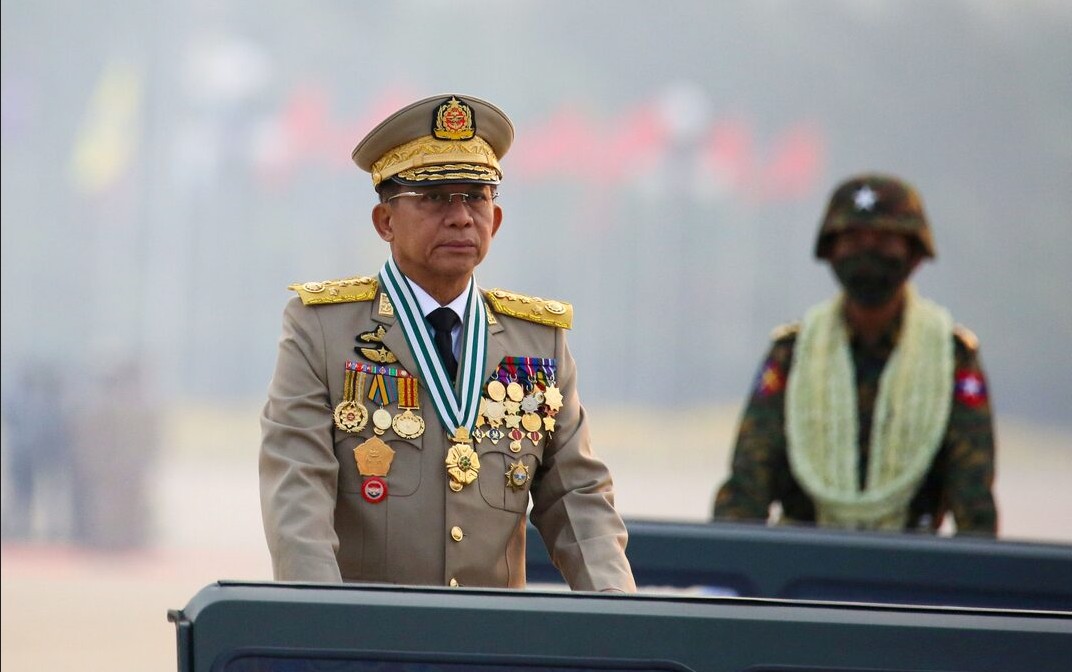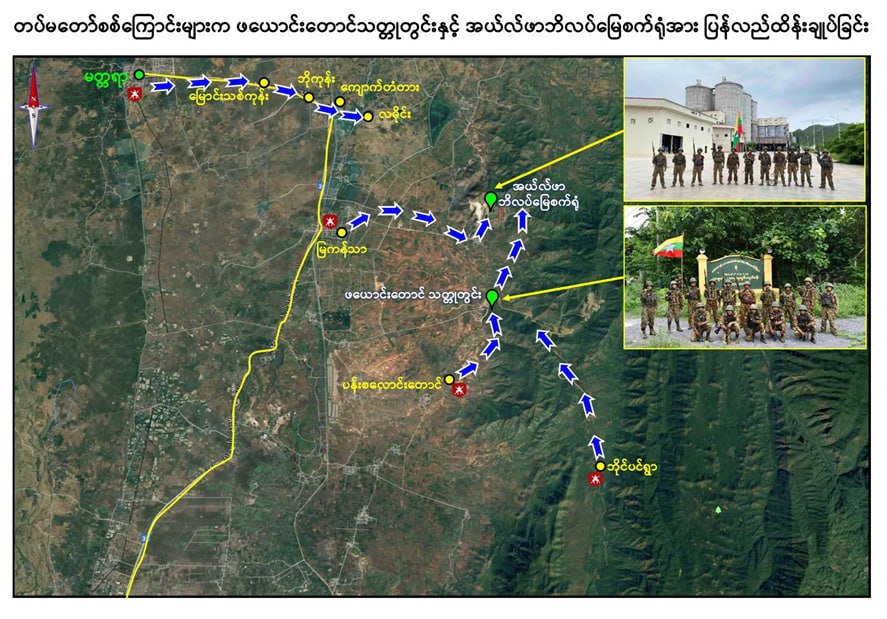CNI News
30 August 2025
After the announcement of the election date, analysts in military and political circles are making comments as to why the Myanmar Tatmadaw has escalated its offensives.
According to U Thein Tun Oo, Executive Director of the Thayninga Institute for Strategic Studies, the Tatmadaw is turning to force because political negotiations have failed.
“When political negotiations don’t work out, the Tatmadaw gradually turns to military means. During the time given for political talks, the Myanmar Tatmadaw kept its military activities low. To put it simply, the Tatmadaw initially prioritized the political track, which created some weaknesses on the military side, resulting in casualties and losses. But now, the priority has shifted to military operations. When the military and political tracks are carried out separately, we will see unusual outcomes.” he said to CNI News.

Senior General Min Aung Hlaing
In recent days, the military launched airstrikes against areas controlled by the Arakan Army (AA) in Rakhine State, and heavy clashes have also taken place in Kyaukme, northern Shan State. Additionally, offensives are ongoing in Sagaing Region, Bhamo in Kachin State, as well as in Karen State’s Hpa-an and Kawkareik.
According to Colonel Khun Okkar, Chairman of the Pa-O National Liberation Organization (PNLO-NCA/S), the escalation of military offensives aims to secure territories where elections can be held without disruption.
“When the election period arrives, there must be areas where elections can be held without disturbance. That is why the Tatmadaw is escalating military operations now. But even before the election period, it is already clear which areas can and cannot hold elections. The current military offensives are directed toward producing that answer. Groups that threaten to disrupt the elections will, of course, destroy them as much as they can. We cannot endorse or oppose it—it depends on each party’s own policy. Therefore, the authorities who intend to hold the election will try to ensure it goes ahead, according to their own policy.” he said to CNI News.
The Union Election Commission (UEC) has announced that Phase 1 of the election will take place on December 28, 2025, across 102 townships.

KNU is declared a terrorist organization
However, groups such as the Kachin Independence Army (KIA), Karen National Union (KNU), Arakan Army (AA), Karenni National Progressive Party (KNPP), and other revolutionary organizations have already rejected the election. Similarly, the National Unity Government (NUG) has urged resistance.
The KNU released a statement on August 26, declaring that the election is merely “a contest to choose people and parties beneficial to the military.” The statement called on all Karen armed organizations, political groups, parties, and the people to oppose the election through non-violent means.
On August 28, the National Security and Peace Commission’s Anti-Terrorism Central Committee, along with the Ministry of Home Affairs, declared the KNU an illegal association and a terrorist organization.
According to the law protecting multiparty democratic elections from disruption, anyone found guilty of obstructing, disrupting, or destroying elections, and causing loss of life, can face a minimum of 10 years imprisonment, life imprisonment, or even the death penalty.




